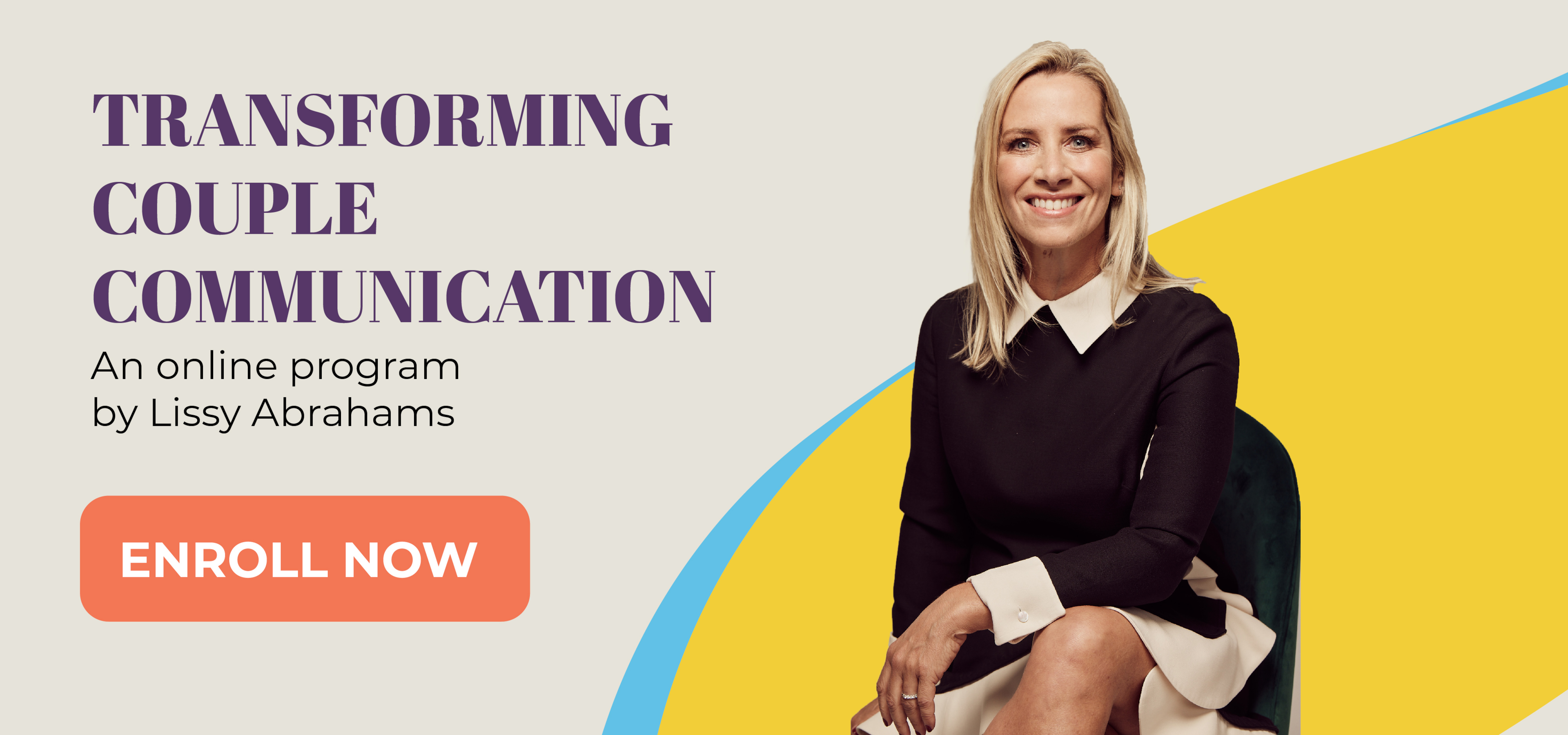How to Be a Better Communicator to Build Stronger Relationships

Communication lies at the core of every successful relationship. Whether it's with family, friends, colleagues, or a romantic partner, being able to express ourselves clearly is essential for building strong connections. This is why it's important to learn how to be a better communicator, and that's exactly what we're going to delve into in this article.
Anthony and Kimberley, a couple from Denver, Colorado have been increasingly finding themselves in a haze of communication breakdowns.
Anthony, an optician, approached conversations with a logical and rational manner. He often found it challenging to navigate emotional discussions. Kimberley, a graphic designer, was more outwardly expressive and tried hard to communicate effectively with Anthony to ensure there was clear communication from her end.
Kimberley often felt that Anthony was dismissive of her feelings, interpreting his logical responses as a lack of empathy. On the other hand, Anthony found himself perplexed by Kimberley's emotional responses to situations he viewed as "minor," leading to a cycle of confusion and frustration. When Kimberley shared her feelings, Anthony's instinct was to quickly offer solutions, not fully grasping the essence of her concerns.
Impact on the Couple

This approach left Kimberley feeling unheard and invalidated, exacerbating her emotional responses and causing Anthony to withdraw further. Meanwhile, Anthony's tendency to internalize his feelings was often misread by Kimberley as indifference or detachment, further straining their communication.
At the heart of their struggles was a fundamental misunderstanding of each other's emotional needs. It was clear that something needed to change if they were to salvage their relationship, as they were no longer feeling connected. They didn't know what to do anymore and needed help. They contacted me for therapy to help them develop effective communication skills.
We all have the potential to significantly enhance our personal relationships and navigate life's complexities more smoothly. It's not just about expressing your thoughts; it also involves learning how to communicate better.
In this guide, I will uncover the secrets of becoming a good communicator. Let's embark on this journey of growth together.
Setting the Foundation: The Importance of Becoming a Better Communicator

In today's interconnected world, where digital interactions often surpass face-to-face conversations, the art of effective communication has become crucial. Moments where words are left unsaid or too forcefully spoken, acknowledgments are half-hearted, and intentions are misunderstood frequently arise from failures in communication.
Effective communication impacts every aspect of our existence, whether in personal lives or the workplace. It leads to understanding, nurtures trust, and fosters stronger relationships. Conversely, miscommunication can cause conflicts, misunderstandings, and severed connections. This highlights the need to enhance good communication.
So, what does it take to become an effective communicator, and how can we achieve it? These questions will be explored in the following sections.
The Core of Communication: Qualities of an Effective Communicator

Have you ever marveled at how some individuals can seamlessly navigate any conversation, whether it's a casual chat, an intense debate, or a sensitive negotiation? The key lies in their mastery of communication skills, and their ability to understand it's a two-way process.
This involves not only expressing thoughts clearly but also actively listening, interpreting nonverbal cues and body language, and managing disagreements with tact as they have the ability to tolerate difference of opinions.
Tips for Improving Communication Skills
1. Self-Reflection and Awareness
- Begin with self-assessment: Evaluate your communication style to identify your strengths and areas needing improvement.
- Recall interactions where your audience (that's your special person) seemed disengaged. Were you truly listening, or were you preparing your response or maintaining a focus on your next speech? Addressing these questions honestly is a crucial step in becoming a good communicator.
2. Active Listening Skills
- Demonstrating active listening: stay focused, show genuine interest, hear them, make room for them to talk, and clarify misunderstandings.
- Utilize verbal and nonverbal communication: Maintain eye contact, nod in agreement (this doesn't mean you agree), have appropriate facial expressions, and adopt an open posture to convey your engagement.
3. Clear Expression of Thoughts and Emotions
- Use "I" statements to express your feelings without placing blame. This increases the chance of your message being received.
- Balance assertiveness and respect: It's key that you deliver your response using words and an appropriate tone of voice to communicate your point. Each person wants to be heard and have their message or ideas communicated successfully.
4. Emotional Intelligence in Communication
- Recognize personal triggers: Understand what causes your stress or emotional reactions and learn to respond thoughtfully rather than react impulsively.
- Empathy is key: Strive to understand and share the feelings of others to strengthen your connections.
Developing these communication skills can profoundly impact various aspects of life, from personal relationships to professional interactions. Now, let's return to Anthony and Kimberley's journey to improve their conversation skills and listen to each other.
Implementing Communication Strategies: Real-Life Success Story
You will recall Anthony was logical and reserved, often struggling to express his emotions. Kimberley was more expressive but felt unheard and misunderstood. Their conversations often ended in arguments, leaving both feeling frustrated and disconnected.

In their therapy sessions, Anthony and Kimberley uncovered several core issues that were hindering their communication. Kimberley often felt that her emotions were dismissed by Anthony and felt undervalued by him.
Therapy also revealed that Anthony struggled to comprehend why Kimberley would become upset over "minor issues," and he would offer quick solutions without fully listening to Kimberley’s concerns which compounded the problem. Feeling unheard, Kimberley would become increasingly emotional, causing Anthony to withdraw further. Kimberley interpreted his silence as indifference, adding to the growing disconnect between them. Therapy sessions also explored how and why they learnt to communicate this way.
Over time, strategies from therapy led to significant improvements in their relationship. Anthony and Kimberley developed a deeper understanding of each other’s perspectives and emotions. Their arguments became less frequent and more constructive, with a new focus on collaboration. This fostered a stronger emotional connection and a more supportive relationship.
Comprehensive Communication Skills Guide with Examples

Effective communication is essential for understanding the emotion and intentions behind information. Here’s how you can improve your interactions, with an example to highlight each point:
1. Being Fully Present and Active Listening
- Dedicate your full attention to the conversation, avoiding distractions. Show that you hear your special person through nods and affirmations and avoid interruptions. For instance, when your partner speaks to you about their project, put away your phone and listen attentively, responding with relevant comments or questions.
2. Empathetic Rephrasing and Tone of Voice
- Use empathetic language and a tone that matches your message's intent. Instead of saying, "You forgot...", say, "I noticed that...". This approach is less accusatory and more understanding. For example, when discussing a missed deadline with your partner, maintain a calm, respectful tone, and phrase the point of your concerns empathetically.
3. Balanced Eye Contact and Non-Verbal Communication
- Maintain eye contact that demonstrates attention but isn't overly intense, coupled with open and engaging body language. In a meeting with your partner, use nods and maintain a posture that indicates involvement and interest.
4. Patient and Calm Interactions
- Practice patience and remain composed, especially in emotional communications. This approach helps prevent misunderstandings and facilitates constructive dialogue. If a discussion with your partner becomes heated, take a moment to breathe and compose yourself before responding.
5. Listening More Than Speaking
- Prioritize listening over speaking to fully understand the other person. In a team meeting, encourage quieter members to share their thoughts and ideas before contributing your own.
6. Seeking Clarification and Feedback
- If something isn't clear, ask for clarification. Similarly, after communicating, seek feedback to understand your effectiveness. For example, after giving a presentation ask a colleague for feedback on your communication style.
By applying these strategies with the examples provided, you can enhance your communication skills, leading to more effective and meaningful interactions in various settings.
Remember, these steps are a foundation for continuous improvement in your communication journey. Let's embark on this journey to become more effective communicators, transforming not just how we speak but how we connect with others.
Resources to Delve Deeper into Enhancing Communication Skills
If you're interested in improving your communication skills, check these resources out:
-
Crucial Conversations: Tools for Talking When Stakes Are High by Kerry Patterson, Joseph Grenny, Ron McMillan, and Al Switzler
-
Talking to Strangers: What We Should Know about the People We Don’t Know by Malcolm Gladwell.
-
Just Listen: Discover the Secret to Getting Through to Absolutely Anyone by Mark Goulston
-
Difficult Conversations: How to Discuss What Matters Most by Douglas Stone, Bruce Patton, and Sheila Heen
Each of these resources offers unique insights and practical advice that can help you develop stronger communication skills in both your personal and professional life.
Frequently Asked Questions: Mastering the Art of Communication
How can I enhance my communication abilities?
To improve your communication abilities, focus on developing habits like active listening, practicing empathy, using "I" statements for and keep your message simple, maintaining eye contact, managing emotions effectively, watching your body language and non-verbal communication, and consistently seeking feedback after interactions (written communication is also an option if feedback is difficult to express verbally). These practices help in better understanding and being understood by others.
What are five ways to communicate more effectively?
1. Active Listening: Prioritize understanding the speaker rather than just preparing to respond.
2. Utilizing "I" Statements: Express thoughts and feelings starting with "I," avoiding accusatory language.
3. Maintaining Eye Contact: Demonstrate engagement and attention to the speaker.
4. Showing Empathy: Make an effort to understand and relate to others' perspectives and emotions.
5. Requesting Feedback: Actively seek input from others to identify strengths and areas for improvement.
How do skills like active listening and adjusting one's speaking approach contribute to being a better communicator, particularly in conversations involving an audience or a group?

Being an active listener is a critical aspect of becoming a better communicator. In any conversation, it's essential to focus not just on the words being spoken, but also to genuinely listen to the underlying messages. This skill is especially important when addressing an audience, whether it's a one-on-one dialogue or a group setting.
Effective communications involve a balance between speaking and listening. A person who can do both adeptly is more likely to convey their messages clearly and deliver their points effectively. In a group conversation, each person has the opportunity to talk, but the true art lies in how well they listen to others.
Listening attentively allows the audience to feel heard and valued, fostering a deeper connection. Similarly, when a person is speaking, they should be aware of their audience's reactions and adjust their delivery accordingly. By focusing on these aspects, anyone can enhance their ability to engage in meaningful conversations, ensuring their messages resonate well with their audience.
What are the essential elements of effective communication, and how do they impact interactions in different settings like groups, with friends, or in leadership?
Effective communication is a multifaceted skill, crucial in various aspects of our lives, whether we're interacting in a group, with friends, or amongst leaders. The ability to communicate effectively hinges on several key components.
Body language plays a vital role, it's not just about what we speak, but also how we carry ourselves during a conversation. An effective communicator knows the importance of non-verbal cues, such as facial expressions and gestures, which often speak louder than words. Another critical aspect is written communication, which requires clarity and conciseness to ensure the message is understood as intended.
Great communicators also excel in active listening. This means not just hearing the words, but fully engaging with the ideas and emotions behind them. It's about being present in the conversation, showing empathy, and providing an appropriate response.
A better communicator recognizes the importance of the audience, tailoring the message and delivery style to suit their needs. Whether speaking, communicating in writing, or simply listening, the goal is always to ensure the message is effectively communicated and the other person feels heard. The choice of words, the way the speech is delivered, and the ability to notice and interpret the responses of others are all integral to this process.
Wrapping Up: Mastering Communication
Mastering the art of communication is a continuous journey of learning and practice. Focusing on key aspects and qualities can greatly enhance your ability to connect and communicate effectively across different areas of your life.
By integrating these tips and strategies, you'll be better prepared to build meaningful connections and relationships. If you're ready to elevate your communication abilities, consider enrolling in Transforming Couple Communication by Lissy Abrahams, one of the self-paced programs I created to help couples and individuals work on becoming a better communicator.
Are you eager to become an effective communicator?
Join the others who have benefited from Transforming Couple Communication by Lissy Abrahams and start your journey toward enhanced communication. These expert-led programs provide the support and guidance you need to strengthen your relationships and improve your interactions. Begin today and discover the profound impact effective communication can have on every facet of your life!




